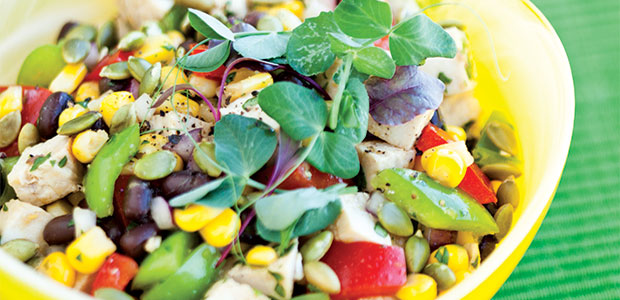Advertisement
Pumpkin Seeds
A nutritious addition to autumn recipes

Every October, whether we’re baking traditional Thanksgiving pies or carving spooky jack-o’-lanterns, pumpkins take centre stage in our festivities. But there’s something many of us discard from inside the hallowed gourd that deserves the same billing as the squash’s orange flesh—the nutrient-dense seeds.
If you’re guilty of ignoring these valuable little gems, you may want to rethink your habits. Scientists have discovered that the flavourful seeds contain a bevy of health-enhancing nutrients—some in almost unrivalled amounts.
Mineral might
While pumpkin seeds are an excellent source of vitamins and omega fatty acids, their unparalleled wealth of minerals is what really has nutritionists gushing. One cup (64 g) of the nutty kernels provides 16 percent of the recommended daily amount of manganese, 42 percent of magnesium, 44 percent of zinc, and 12 percent of iron. Compelling research indicates this rich lineup may help you sidestep Alzheimer’s, cardiovascular disease, cancer, diabetes, depression, immune dysfunction, and osteoporosis.
Protein power
Protein is a part of every cell in the body, and pumpkin seeds are one of the plant world’s best sources of this essential macronutrient. Surprisingly, 1 oz (28 g) of these super seeds contain more protein than an ounce of beef or a cup of milk! What’s more, a preliminary animal study suggests that the protein in pumpkin seeds potentially holds unique liver-protective properties.
Antioxidant protection
In addition to antioxidants such as vitamin E and zinc, pumpkin seeds boast a dizzying array of carotenoids, polyphenols, and plant sterols. Research has shown that these may have anticancer, anti-inflammatory, and heart-protective properties.
Instead of tossing these nutritional superstars, we should be incorporating them regularly into our snacks and meals—try them out in one of these tasty dishes.
Recipes
- Rainbow Chicken Salad
- Seedy Bean Burgers with Goat Cheese and Balsamic Reduction
- Lemon Mushroom Pasta with Ground Pumpkin Seeds
- Hearty Fall Stew with Ground Pumpkin Seeds
In the raw
Of course, it isn’t necessary to roast pumpkin seeds at all—they’re equally delicious and nutritious in their raw, unadulterated state. Although they’re great eaten out of hand, there are a myriad of other ways to enjoy them. Some suggestions include:
- incorporating them into your cookie, muffin, quick bread, and granola recipes—they lend an intriguing texture as well as their sweet, nutty taste
- serving them overtop your morning yogurt or “hot cereal” bowl (great with millet porridge)
- grinding them finely and adding to stews, soups, and pasta dishes, or using them to create a crispy coating for tofu, fish fillets, and more
To avoid exposure to pesticides, always purchase organic pumpkin seeds.
Store roasted or raw pumpkin seeds in an airtight container in the refrigerator. They retain peak freshness for up to two months.
How to roast pumpkin seeds
Roasted pumpkin seeds are readily available in most supermarkets, but it’s a snap to roast them yourself. This allows you to control the time and temperature involved, avoiding any deleterious effects that may be incurred by over-roasting. A recent study suggests that roasting the seeds beyond the 20-minute mark can bring unwanted changes to their healthy fat structure.
To roast at home:
- Remove the seeds from the pumpkin’s inner cavity and wipe them dry with a paper towel to remove any excess pulp that may have clung to them.
- Spread them out evenly in a single layer on a dry baking sheet and let them dry out overnight.
- When ready to roast, simply pop them into a preheated 200 F (93 C) oven for 15 to 20 minutes.
- Allow to cool and squeeze the kernels out of the hull. Although edible, the hull can be tough and stringy.
Alternatively—buy the seeds raw and dry-fry them in a heated skillet on the stovetop until lightly golden. Use medium heat and keep a close watch while roasting—do not let the seeds burn!




